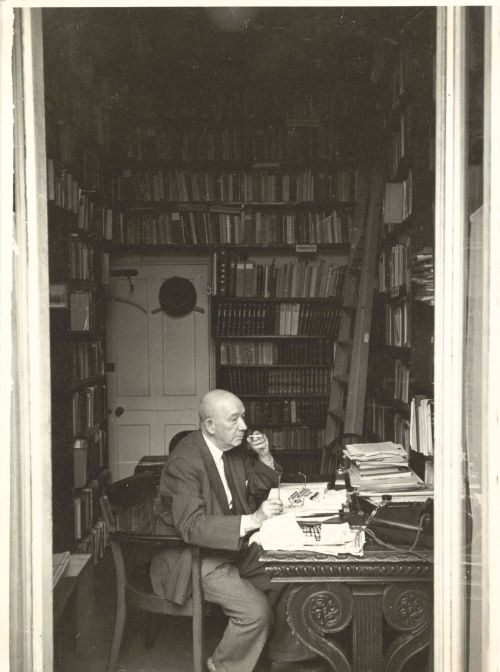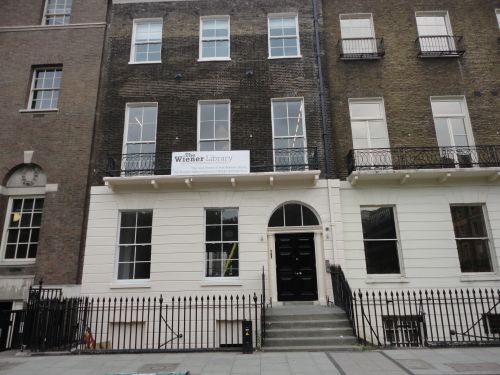Alfred Wiener

Alfred Wiener at his desk in the Wiener Library (Wiener Library)
Alfred Wiener was born in Potsdam on March 16, 1885. After attending grammar school in Bentschen, Poznan and then in Potsdam, he studied at the Universities of Berlin and Heidelberg, where he took his doctorate in Arab literature. After the First World War, Wiener became the syndic and executive officer of the Centralverein, the largest Jewish organisation in Germany, which at its peak represented 300,000 people, over half the Jewish population in the country. Its ideology was assimilationist, emphasizing that Jews were national Germans entitled to full equality and differentiated only by religion. It offered legal protection to Jews, fought against the erosion of Jewish identity and the flood of anti-Semitic propaganda which was sweeping through Germany in the 1920's.
Alfred Wiener was particularly active in this struggle, regarding antisemitism as a test case of German democracy and constantly protesting against the indifference of the authorities, the silence of the press and public apathy. His brochure Vor Pogomen? (1919) warned of the consequences of the pseudo-scientific hate-mongering which was perverting German nationalism under the eyes of the authorities, and he attacked the leniency of the judiciary in the early days of Nazi subversion.
Wiener's appeals to the conservative middle classes fell on deaf ears and he was obliged to leave Germany in 1933, fleeing to Holland where he established the Jewish Central Information Office. This was the nucleus of the massive documentation on the perils of Nazism which he accumulated in the late 1930's and transferred to London in 1939.
The renamed Wiener Library played an important role in the British government's propaganda warfare against Nazi Germany and as source material for the British military, officialdom and the press about the Third Reich. After the end of the Second World War, the library provided crucial information in the prosecution of war criminals and subsequently developed into a major archive for the historical study of Nazism and the Third Reich.
Alfred Wiener frequently visited Germany during the 1950's and sought to create a spirit of reconciliation between Jews and Germans while warning against any resurgence of Nazism. He died in London on February 4, 1964.
Chris Webb outside the Wiener Library in Devonshire Street, London - April 2003
Wiener Library - 29 Russell Square London 2011
Sources
R.S. Wistrich, Who’s Who in Nazi Germany, published by Routledge, London and New York 1995
Photographs – Chris Webb Private Archive, Wiener Holocaust Library
Thanks to Torsten Jugl - Photo Archivist - Wiener Holocaust Library
© Holocaust Historical Society- July 3, 2020



